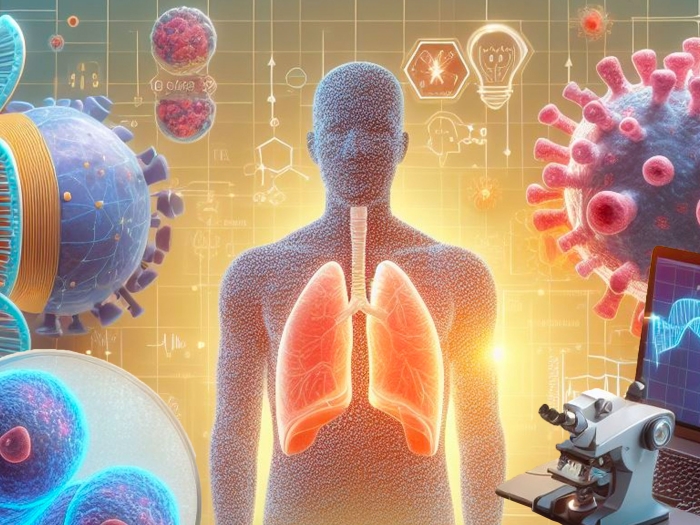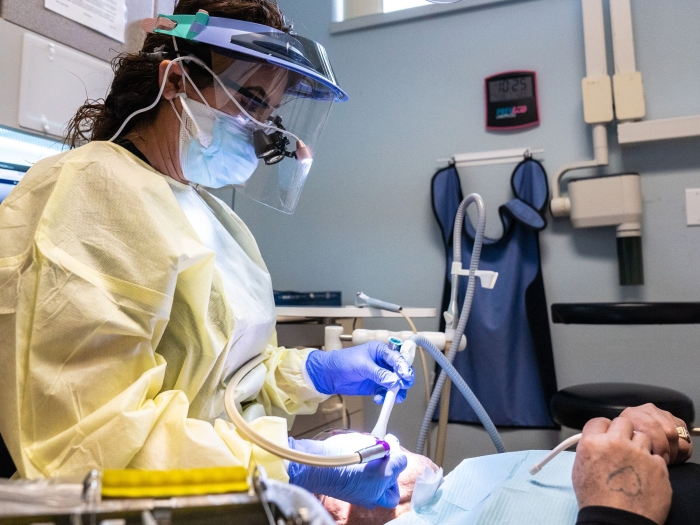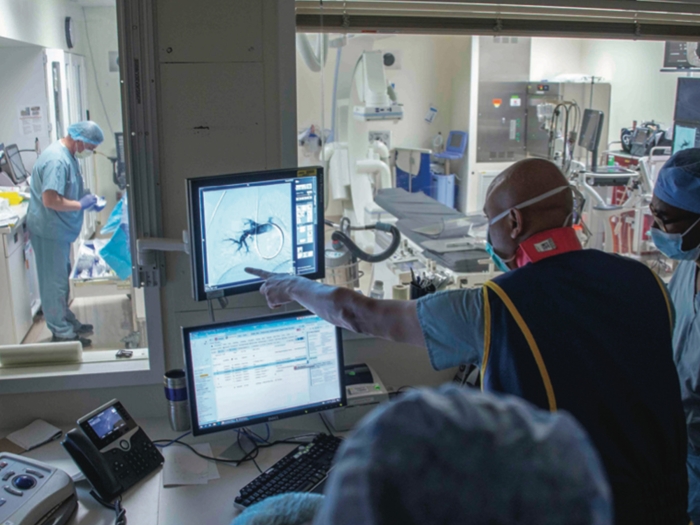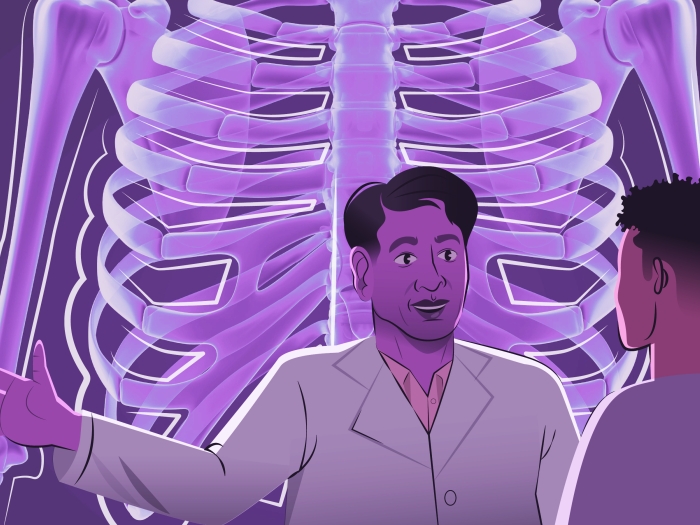The fluorine-based agent replaces an iodine-based agent developed decades ago at the University of Michigan.
5:00 AM
Author |
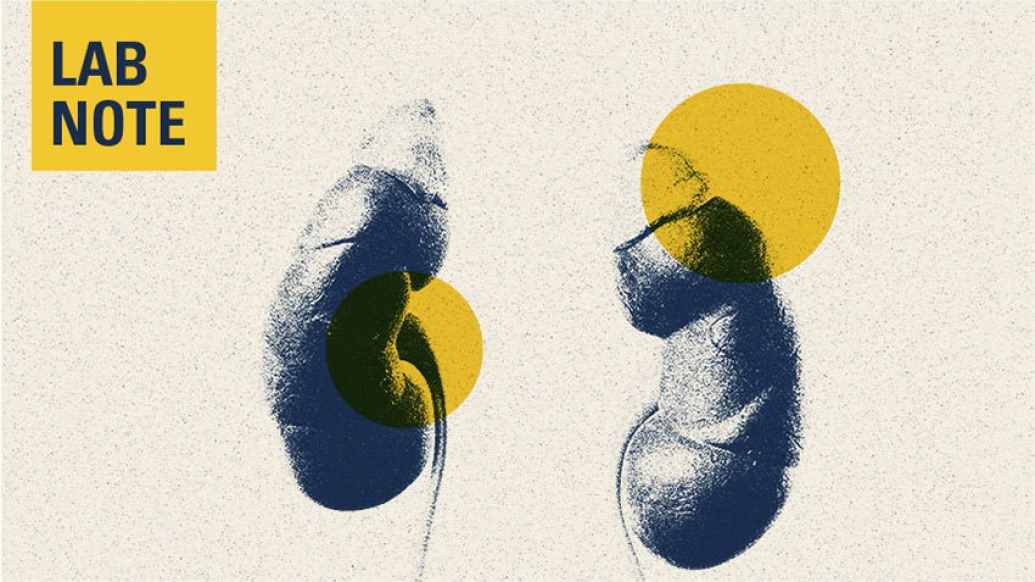
Researchers have developed a noninvasive method to identify a potential cause of hypertension with a drastic reduction in radiation exposure, a new study shows.
Around 10-15% cases of hypertension, or high blood pressure, are believed to be caused by excessive production of the hormone aldosterone, which affects the body's salt-water balance. This can be due to an adrenal adenoma, a tumor that causes irregular aldosterone production.
Like Podcasts? Add the Michigan Medicine News Break on Spotify, Apple Podcasts or anywhere you listen to podcasts.
The current testing for an adrenal adenoma is invasive, sampling the blood leaving the adrenal gland. For years, radiologists had used an iodine agent for measuring cholesterol uptake, the precursor to aldosterone, as a noninvasive alternative. This test was complicated by requiring patients to take steroids for a week prior to imaging and exposed them to high amounts of radiation.
A Michigan Medicine team led by Allen Brooks, Ph.D., an assistant research scientist, developed a new reagent that replaced the iodine with fluorine-18, a radioisotope commonly used in PET scans. They found that the method resulted in significantly less radiation exposure and could allow screening for hypertension-linked aldosterone adenomas. The paper is published in the Journal of Nuclear Medicine.
"This agent gives us a noninvasive way to find out if aldosterone is being produced abnormally, one that significantly limits the potential harm to our patients through decreased exposure to radiation and limiting of steroid use," said Benjamin Viglianti, M.D., Ph.D., senior author of the paper and associate professor of radiology at University of Michigan Medical School.
SEE ALSO: Global contrast media shortage: Strategies for conservation
"Adrenal adenoma, if identified, can be removed surgically, which can cure people of their hypertension. This can help people with the disease by being deployed as a screening tool."
The original iodine agent used for imaging patients with adrenal aldosteronism was developed at University of Michigan in the 1970s. It was discontinued in the late 2000s due to federal regulations.
Researchers tested the fluorine-18 reagent in nine healthy subjects, finding it safe to use and effective at detecting stimulated hormone production through increased cholesterol uptake. The next step, they say, is to conduct a larger clinical trial analyzing patients with hypertension caused by excessive aldosterone production.
However, given cholesterol is found in other diseases, particularly the cardiovascular system, there is hope that this agent could have broader clinical applications.
"This work is a modern improvement of one of the imaging agents developed 50 years ago by Raymond Counsell, William Beierwaltes and a team here at the university," Brooks said. "The continued close collaboration between physician scientists and research chemists have enabled the translation of new diagnostic agents to improve our understanding of disease and hopefully improve patient outcomes."
SEE ALSO: Study: Treatable Cause of High Blood Pressure Often Ignored
Additional authors include: Wade P. Winton, B.S., Jenelle Stauff, B.S., Janna Arteaga, B.S., Bradford Henderson, B.S., Jeremy Niedbala, B.S., Peter J. H. Scott, Ph.D., all of Michigan Medicine
Paper cited: "Development of Fluorinated NP-59: A Revival of Cholesterol Utilization Imaging with PET," Journal of Nuclear Medicine. DOI: 10.2967/jnumed.122.263864
Live your healthiest life: Get tips from top experts weekly. Subscribe to the Michigan Health blog newsletter
Headlines from the frontlines: The power of scientific discovery harnessed and delivered to your inbox every week. Subscribe to the Michigan Health Lab blog newsletter

Explore a variety of healthcare news & stories by visiting the Health Lab home page for more articles.

Department of Communication at Michigan Medicine
Want top health & research news weekly? Sign up for Health Lab’s newsletters today!

